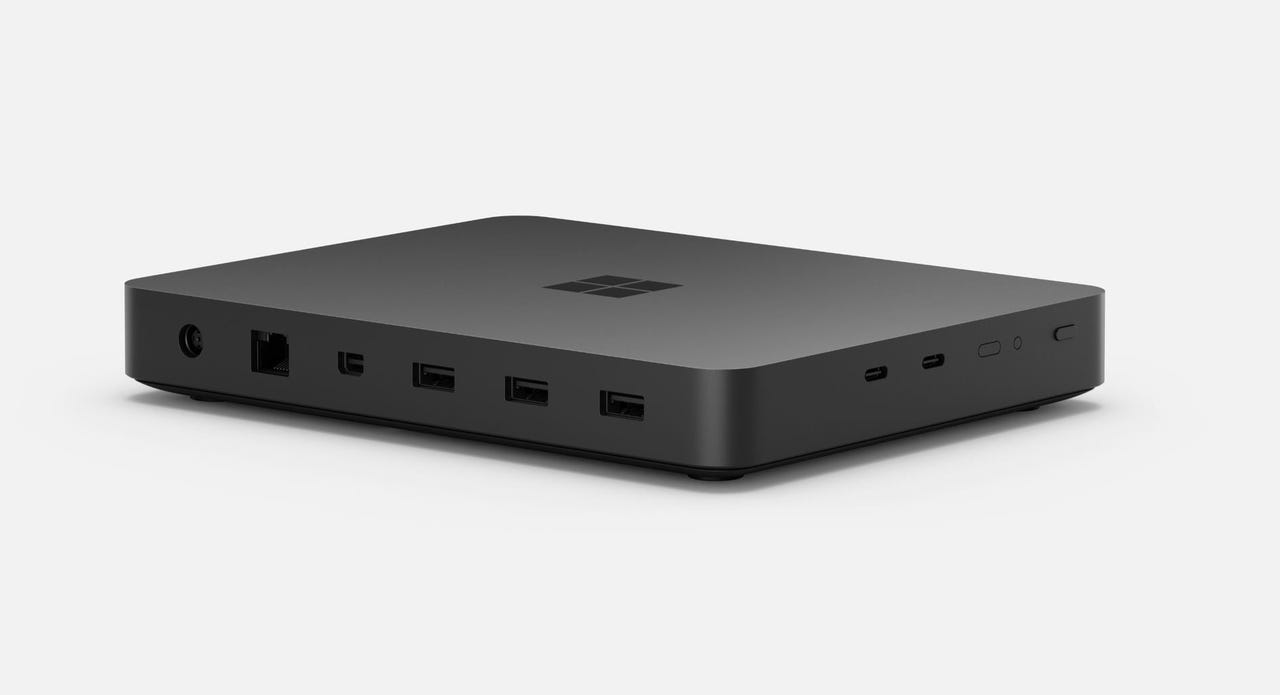Microsoft starts shipping its Windows on Arm device for developers: Windows Dev Kit 2023


"Project Volterra," Microsoft's device aimed at developers interested in building, testing and running native Windows on Arm apps, is shipping as of today, October 24. Microsoft is counting on the new $599 device to attract more developers to build native Windows on Arm apps, especially AI apps which take advantage of the built-in neural-processing unit in the Qualcomm platform.
Windows Dev Kit 2023, as the new mini-PC is known, runs the Snapdragon 8cx Gen 3 CPU and comes with 32 GB of RAM, 512 GB of storage, Wi-Fi 6, physical Ethernet, three USB-A, two USB-C and one mini-display ports. Users can drive up to three external monitors simultaneously (including two at 4K 60Hz). The device is available starting today in eight countries: Australia, Canada, China, France, Germany, Japan, United Kingdom and United States. (Beyond the $599 for the single configuration, pricing will vary by market availability, a spokesperson said.)
To try to encourage more developers to target the Windows on Arm platform, over the past five months, Microsoft has released previews of a number of its own tools ported to Arm, including Visual Studio 2022 (preview), the Windows App SDK (preview) and libraries including VC++ Runtime and .NET 7 (preview). Azure VMs featuring the Ampere Altra Arm-based processor (which support various Linux distributions, plus preview releases of Windows 11 Pro and Enterprise). The company also ported Teams, Arm64 Office, Edge, Defender for Endpoint and OneDrive Sync so they work on Arm natively.
Microsoft also is offering developers access to its App Assure app-compatibility service as another lure. Devs who encounter app-compatibility issues or technical blockers when porting their apps using the Windows Dev Kit 2023 will get assistance to Microsoft engineers to help fix the problems.
Although there is nothing stopping non-developers from buying the Windows Dev Kit 2023 device, there really is no compelling reason for any "normal" users to be running Windows on Arm at this point -- at least in my humble opinion. For years, Microsoft has been working on making Windows on Arm work comparably to Windows on Intel to little avail. The kind of battery life and performance gains promised by Arm have not materialized for most in real-world use, in spite of OEMs (including Microsoft itself), citing some pretty impressive numbers.
Rich Turner, Principal Product Manager Lead at Microsoft, took to Twitter last week to try to defend Windows on Arm. He said he believes that Windows on Arm and Windows on Intel are "pretty comparable now."
"Arm devices can run x86, x64, and Arm64 apps simultaneously! Currently in-market devices like Lenovo's X13S & Surface Pro 9, and upcoming devices like 'Project Volterra' are surprisingly quick, and will get quicker as more apps are ported," Turner tweeted.
When asked about why Windows on Arm PCs still don't match Apple hardware in terms of battery life, he tweeted: "There's a TON of work going into analysing and improving power consumption right now. Though, interestingly, the CPU is rarely the largest power consumer in a laptop/tablet - that's usually the screen and/or wireless comms."
The official Microsoft response from a spokesperson when I asked about the value proposition of Windows on Arm: "With Surface Pro 9 and the upcoming Windows Dev Kit 2023 in mind, we believe the continued investments we're making in Windows on Arm will ultimately benefit customers and the entire Windows ecosystem."